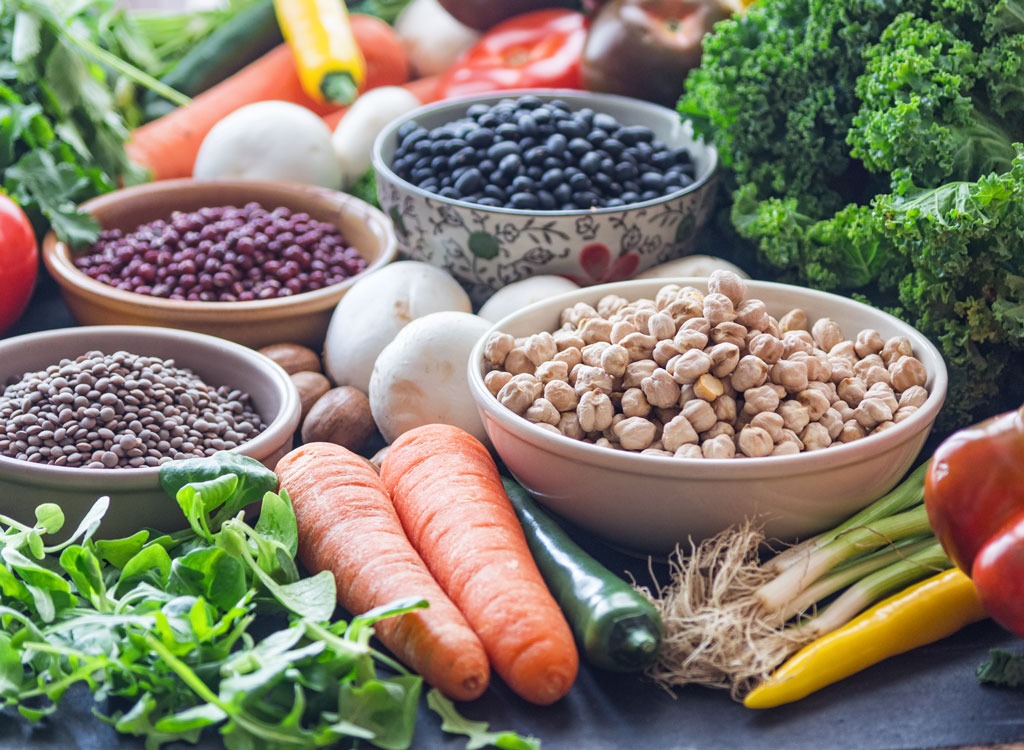Experts Say Eating Less Red Meat and Dairy Will Change the Environment

Could you drop down to only eating red meat once a week? A new report says you should to help the environment.
Dozens of articles and studies about red meat having negative impacts on your health swarm the internet daily. Whether you’ve chosen to digest that information and alter your diet accordingly or not, there is a new report now that may make even the most avid steak-eater reassess their consumption of tenderloin and beefy burgers. This new report from EAT, a Stockholm-based non-profit startup, suggests redoing your diet—starting with eating less red meat, dairy, and sugar.
The Associated Press just released a report organized by EAT that, in the company’s words, is “dedicated to transforming the global food system through sound science” with regard to the need to switch to a plant-based diet and limit meat consumption—especially red meat. The report, which was published in the medical journal The Lancet, proposes what’s called the “Great Food Transformation,” which calls for a 50 percent global consumption cut of red meat and sugar, as well as a 100 percent increase of the consumption of fruits, nuts, legumes, and vegetables by 2050. More affluent countries—namely the United States—are the places that drastically need to make this shift.
How does EAT propose this change in diet will benefit our health and the environment?
EAT gathered a panel of nutrition, agriculture, and environmental experts who collaborated and discussed how our current global food system is currently threatening human health and environmental sustainability—two aspects our way of cultivating and eating food is supposed to nurture and support. They believe that we have the ability to reverse this bleak trajectory so that we can boost the longevity of both humans and our Earth.
A report by the United Nations says that livestock are responsible for an estimated 15 percent of the world’s gas emissions, which are warming the Earth at an accelerated pace. Reducing the consumption of red meat could be a huge step toward reversing climate change. Senior researcher at CICERO Center for International Climate Research in Norway, Robbie Andrew, told the Associated Press that chicken and pork produce far fewer emissions than beef, but it is plants that have among the smallest carbon footprints.
But I love red meat and dairy products. What’s a reasonable way that I can still have some of both in my diet?
As for red meat, experts suggest only eating one hamburger a week because of how much precious resources a single cow sucks up. Not to mention, livestock naturally emit a greenhouse gas that contributes to global warming. Producing red meat not only takes up a great deal of land and water to keep the grass growing (cows need space to roam and graze), but it also requires a lot of feed—a 1,200-pound cow eats about 24 pounds of dry hay every day. What’s more is that when a cow belches, it emits methane, a gas that’s negatively affecting climate change.
As we know, dairy products are byproducts of cows, so experts recommend eating just one serving or less of dairy per day. Eggs should also be limited to a maximum of four per week.
Meat is considered an essential food in some cultures, so how is this projected to work?
The optimal diet the report outlines is made to be flexible enough for varying food cultures around the world. In other words, each region has its own set of guidelines and expectations. For example, you’ll see in this infographic that North America by far consumes the most red meat of any other region.
In general, the diet that these experts are pushing for includes one that is rich in whole grains, beans, fruits, and a variety of vegetables. It also says to limit added sugars, refined grains (think white bread and rice), and starches like potatoes.








